Arts & Entertainment
Dishing with Bruce
Hollywood funny guy on ‘70s drugs, the Oscars and hanging out with Robert Reed


Bruce Vilanch is in town to honor Carol Burnett at the Kennedy Center this weekend. He’s at Cobalt Friday night. (Photo by Rick Stockwell)
Bruce Vilanch — perhaps America’s favorite gay funny man — will be at Cobalt Friday night to greet fans. Famous for his Oscar jokes and appearances on “Hollywood Squares,” we caught up with him by phone two weeks ago where he was in a jovial mood, cracking jokes the whole time. His comments have been slightly edited for length.
WASHINGTON BLADE: Is it harder to make people laugh in the Internet age? How do you still make people laugh when they’ve seen it all?
BRUCE VILANCH: Well yeah, it’s harder to come up with original stuff because someone will write something, post it online then it’s out there before it’s even been performed. It’s like instantaneous. So it’s harder now to surprise people. But on the other hand, people are so much more connected now that they get every joke. Things are in touch almost to a sickening amount so that by the time you try something live, they get every reference because they’ve had a chance to be exposed to it. I guess there are plusses and minuses. I think also the chances of offending somebody have quadrupled.
BLADE: Why?
VILANCH: Everybody feels their opinion is valid and they have a place to post it publicly now. It used to be reserved for the people who had the platforms but now anybody can post their opinion.
BLADE: Is it hard to keep doing it? I think many of us outside of Hollywood imagine it must be constant pressure.
VILANCH: Well, you have to keep working at it. Fortunately as a writer, you can generate your own work. Actors have a hard time doing that. But then you have to go off and try to sell it. You can never afford to be asleep at the switch, unlike the people who run trains in Chicago. But thankfully there are no real term limits on these kinds of things. I guess at a certain point you start fighting a creeping ageism but if you’re distinctive enough, people don’t mind. Everybody loved Rodney Dangerfield and now he’s up there with God. God must be happier now.
BLADE: What brings you to our fair city?
VILANCH: I’ll be in town to be part of the Mark Twain Prize ceremony to Carol Burnett at the Kennedy Center (on Sunday), so while I’m here I’ll be making a little appearance at Cobalt as well.
BLADE: Will you be performing at Cobalt?
VILANCH: Not really a performance. More of a meet-and-greet and maybe answer some questions. And getting some phone numbers hopefully. Facebook is unreliable. You have to save them in your phone.
BLADE: Did you do any writing for Carol’s show back in the ‘70s?
VILANCH: No, I never did. She and her husband at the time believed in hiring writing teams. They seemed to like what they were getting with the contracts for a writing team and I didn’t have a writing partner. I had a sex partner, but that’s not what they were interested in. Later I worked with her on some specials and some personal appearances but not anything where she was in character.
BLADE: What was the show she did in the early ‘90s on NBC?
VILANCH: Oh yeah, “Carol & Company” I think. It did fairly well I think, but she stopped because she said it was like shooting a new pilot every week. Each episode was like a one-act play and that’s very hard to pull off on a weekly basis. I think she had some success with it but she just didn’t want to work that hard all the time.
BLADE: The Screen Actors Guild just came out with a study on actors and anti-gay discrimination. It seemed a little surprising considering how many power gays we have in Hollywood like Ellen and Neil Patrick Harris.
VILANCH: Who look remarkably similar, don’t they?
BLADE: We see lots of LGBT actors, but is it still squeamish in the boardrooms? What’s been your experience?
VILANCH: I think it’s a lot less squeamish than it was. I’m not really in the boardrooms, so I can’t really comment on that. It’s just like every place generally. We’ve become part of the mainstream. We’re probably getting very close to having a big male action or romantic star who’s gay. I don’t know who it would be. Maybe if Cheyenne Jackson got a big role or something we could test the long-held theory that they won’t buy you in a big action or romantic role if you’re gay. It’s happening more in pro sports. … Maybe someday we’ll have somebody say, “Yes, I’m James Bond. And I enjoy a good old fudgepacking.”
BLADE: Of course we have to talk about the Oscars. The host job seems notoriously brutal. The critics seem like they can’t wait to hate anybody new who tries it. Yet you always seem to come out smelling like a rose. Is it because you’re not out there on stage?
VILANCH: I’m flattered you think that but obviously you don’t read the same blogs I do. I get slammed all the time. I get slammed for Oscar shows I didn’t even write, that I had nothing to do with. People are always saying, “Why don’t they get rid of that guy?” I’m like, “Well, if you stayed to read the credits, you’d see,” but I guess nobody is awake to read the credits at 4 or 5 in the morning so I really can’t blame them. But that’s the hallmark of the Internet really. People cutting loose with ignorant opinions, so I continue to get blamed. I feel like I wake up covered in mud. Even when the show’s a hit, or I win an Emmy, people are saying, “Oh, it was boring, it was horrible.” I remember the producer of the Oscar show used to have two framed reviews on his office wall. One was a rave from the New York Times and one was a slam from the Los Angeles Times. They were as extreme as they could be and they were about the same show. So you really never win, except, I guess, when you do.
BLADE: But why are people so tough on the host? I remember watching David Letterman and Jon Stewart do it and laughing throughout the night. They may not have been the best ever, but they didn’t seem to me to be as bad as everybody thought they
VILANCH: Well, just by the sheer numbers you realize that a lot of people who watch must be unfamiliar with these hosts beforehand. Suddenly you’re up there in front of 35 million people, so everybody has an opinion. And they’re working within a certain limitation, so they can’t just do what they do on their own shows. And sometimes things play differently at home but didn’t play that well in the house. Sometimes it’s just the wrong energy. With Letterman I think it was kind of like, “OK, we don’t need TV boy here coming out and making fun of our names.” But then he used that as a running gag on his own show forever. … And a lot of these people who watch aren’t even people who go to the movies. It’s like people watching the Super Bowl who never watch football. It’s just kind of a cultural experience people feel they have to share in. It’s like the people going out on New Year’s Eve and that’s the only time they go out. So you’re not always working with the best possible audience to be honest.
BLADE: You wrote for the “Brady Bunch Hour.” Was Robert Reed out to you?
VILANCH: Oh sure. He lived with his mother but we would go out to clubs together. He was kind of into rough trade. But he was afraid to go anywhere much because he was afraid of being seen. So we would arrange to sit back in some dark corner. It was very pre-Stonewall. I mean, it wasn’t technically pre-Stonewall, but it still felt like pre-Stonewall.
BLADE: What was he like? Was he fun to hang out with?
VILANCH: Well, he was so deeply closeted it was hard to get him to let loose and just have fun. He was always very nervous about it. A lot of these people living this kind of big secret tend to be pretty tightly wound because so much is at stake. But yeah, once you broke through all that, he was fun. I was always out and I was this big flamboyant comedy type and he was comfortable with me. I kind of helped him lubricate his way so to speak (laughs).
BLADE: For all the great stuff you’ve done, you’ve also been involved in some of the most ignominious bombs in all of pop culture history with stuff like “The Brady Bunch Hour” and the “Star Wars Holiday Special.” I hope you’re not offended by this question, but did you have any sense at the time, these would attain such train wreck
VILANCH: Well, you always go into something thinking it’s a good idea but you have to remember, this was the ‘70s and so we were all a bit chemically altered at the time. You have to also realize, like with the Brady show, this type of variety show concept was still popular at the time. We didn’t realize it was breathing its last. It’s the kind of thing that could have been really terrific if any of them could sing and dance. I mean they did a little on their original show but it became clear pretty quickly when we tried this sort of hybrid thing, that it wasn’t going to work. It’s still fun to roll the dice. Now had you told me if would have become like this kind of cult thing, that would have surprised me at the time.
BLADE: Obviously when you’re writing an awards show, you have to know the material that’s nominated. How do you have time to watch whole seasons of TV shows and all the Oscar nominees?
VILANCH: Well, it’s a lot easier than it used to be because they just send you screeners now and you can sit at home. It sure beats having to go to screenings, which were horrible experiences. No popcorn. But I go to the movies anyway. To get paid for it just tickles me to no end.
BLADE: Obviously most of us are not Hollywood insiders, so something I’m always curious to ask people who are is this: Does the cream always rise or have you seen true cases of highly talented people who just never got the right break? Sometimes it feels surprising to watch some of the stuff that does get a green light.
VILANCH: Have I seen people fall through the cracks, yes I have. There’s a feeling that there’s a kind of natural selection at work and it’s survival of the fittest. You kind of have to have the right combination too. It’s not always enough to just have the talent. You have to have the talent and the ambition and the kind of personality that allows you to hang in there long enough and have a thick hide so that you can get through life with all that rejection. So yes, there have been lots of people who didn’t have just that right combination. Maybe there were too dependent on something or they just didn’t have the oomph to push themselves through. With others, the talent seems to rise briefly because they get lucky but the ones who really last really do have unbelievable stamina and manage to break through all the other stuff. It sounds terribly dry, but it’s true.
BLADE: Where do you live?
VILANCH: In West Hollywood. I was up in the Hills for 28 years, but now I have a fabulous loft right on the boulevard. I stand out on my balcony like Eva Peron for the AIDS Walk and Pride and Halloween. And now I can stagger home.
BLADE: Do you hang out at gay bars in West Hollywood?
VILANCH: Yeah, some. Usually the reason you go out to a bar is to meet people who don’t answer your job description. But now there’s Grindr and that stuff, so you don’t have to go out as much.
BLADE: Some of the stuff they try for the Oscars seems a little head scratching at times. Like one year, they handed out some categories down in the aisles. Another year they had all the nominees come up on stage. Do you have any say in those kinds of decisions?
VILANCH: Um, no. Listen, at the time that kind of stuff is usually a response to some criticism that’s come up. Like that year, somebody had said, “Gee, how can we save some time here?” All those technical awards, the people are sitting in the back and it takes them so long to get to the stage. Somebody thought maybe having some of that done in the aisle would save some time. That was the perceived solution, but then everybody thought it made them seem like second-class citizens. There’s a little bit of reinventing the wheel every year but with a lot of it, there’s not a whole lot you can do. And the networks aren’t really upset with the long running time, because that just allows them to sell more ads so even when it’s absurdly long, they’re still pretty happy. I think one year they added like three or four honorary awards and that ended up adding like 45 minutes to the show and the network said, “OK, guys, this is a little ridiculous.” But one thing that’s worked is to hand some of those technical awards out at its own separate function, then just show highlights as a clip package and that saved a lot of time. The innovation I really liked the most was when Bill Condon had previous winners come out and salute the nominees individually. Then they said, “Oh it was too long,” so they only did it in two categories the next eyar and it didn’t have the same impact at all. I thought it was a fabulous innovation but the only problem was after awhile you would run out of previous winners. You only get one each year in each category.
BLADE: Well, you could just keep having Luise Rainer (age 103) come out every year to do it, God bless her. She’s been great about coming back for the milestones.
VILANCH: Yes, wasn’t that great? And one year Olivia de Havilland flew in from Paris, that was just great too.
BLADE: What’s one thing you miss about ‘70s-era Hollywood and one thing you don’t miss?
VILANCH: Well I guess I miss the drugs. It was the ‘70s so there was all this hedonism so you had that and the porno mustaches, which I love. But on the other hand, to be honest, I don’t miss the drugs. I really don’t miss everybody being loaded all the time and they really were. It was probably the first time there was really this relentless
VILANCH: Um, no. Listen, at the time that kind of stuff is usually a desire to be young and that really hasn’t gone away but it was hysterical then when I was young. People would be wearing these flowered shirts with love beads and just trying very hard to be hip when really they were all barracudas. They did make us laugh.
BLADE: For all of us gays who love Carol, but will never get to schmooze with her, please give her our regards.
VILANCH: (laughs) OK.
a&e features
Transmission DC breathes new life into a storied sound space
A fresh home for boundary-pushing culture on H Street

Late last year, phoenix-style, a fresh home for boundary-pushing culture arose on the H Street corridor. Transmission DC – a queer, trans, and POC-owned, operated, and centered community-focused venue – powered on in the former home to the Rock & Roll Hotel (famously, not a hotel, but very much rock & roll). Transmission (1353 H St., N.E.) arrives secure in its mandate – or even birthright – to provide a place to celebrate creativity and music through a lens of inclusivity and respect.
Transmission’s team brings experience, but also representation. Owners/partners Kabir Khanna (who is also programming director), Katii B, Ellie McDyre, and Kelli Kerrigan together previously managed 618 productions, a venue in Chinatown, crafting “some of D.C.’s freakiest parties, raves, and mosh pits” they note.
They packed up operations last fall to a space curated specifically for D.C.’s underground music and culture scene, building their efforts in Chinatown to bring in more fans in queer and POC circles.
Transmission, Khanna points out, is built on DIY values. In the music scene, DIY means that promoters and organizers – often disconnected from the mainstream and part of marginalized communities – build shows and programs collaboratively, but independently from institutions, supporting each other as smaller, independent venues close. Here, Transmission aims to ensure that those putting together these underground inclusive shows have a more permanent and stable home, can have access to resources, and can provide more sustainable income to artists. “We’re trying to get more people to support and enjoy the music, and also give artists and organizers within the DIY community more structure and a larger cut,” says Khanna.
Khanna also notes that Transmission operates “under the principles of safety, inclusivity, and respect.” McDyre added that even at venues that claim inclusivity, that statement might not take place in practice. We’re “not just pitting up a rainbow flag,” says McDyre, but as some of the owners are trans and POC, audiences can see themselves reflected at the top.
Much like the DIY nature of the music community, the Transmission owners brought a DIY ethos to turning around their space.
In March 2020 – the height of COVID lockdowns – Rock & Roll Hotel suddenly shuttered, though not due to the pandemic; instead, the venue claimed that decreasing sales and increasing competition led to the closure. For 14 years, it was the central spot for cheap beer and lesser-known and celebrated acts. The space stood vacant for more than five years, until Transmission turned the power back on.
“When we got into the space, it was effectively abandoned for years,” says Khanna. “There was a ton of mold, and paint primer covering all surfaces. It was nearly falling apart.” Khanna noted that many music venues like this one, regardless of how well it was maintained, “get the shit kicked out of it,” given the nature of shows. The team called in mold removal contractors, ripped up most of the floorboards, and started fresh.
Transmission’s first floor is styled as a stripped-down black box: the better to take in the music. “It’s minimal on purpose to act as a canvas for set design and music,” without a specific aesthetic, says Khanna. Moving upstairs, the second floor has been opened up, removing some walls, and now has a larger dance area than the first floor. Beyond the first two performance levels, and a holdover from Rock & Roll Hotel, is the rooftop. Though without a stage, the rooftop space is filled with murals splashed across the walls, with a full bar. Transmission’s current capacity is 496, but the team is looking to grow that number. Transmission will also leverage the full kitchen that Rock & Roll Hotel operated, bringing in Third Hand Kitchen to offer a variety of food, including vegan and vegetarian options.
Khanna pointed out an upcoming show reflective of Transmission’s inclusive ethos: Black Techo Matters on Feb. 27. The event is set to be “a dynamic, collaborative night of underground electronic music celebrating Black History Month.” Khanna says that techno came from Black music origins, and this event will celebrate this genesis with a host of artists, including DJ Stingray 313, Carlos Souffront, and Femanyst.
Movies
Moving doc ‘Come See Me’ is more than Oscar worthy
Poet Laureate Andrea Gibson, wife negotiate highs and lows of terminal illness

When Colorado Poet Laureate Andrea Gibson died from ovarian cancer in the summer of 2025, the news of their passing may have prompted an outpouring of grief from their thousands of followers on social media, but it was hardly a surprise.
That’s because Gibson – who had risen to both fame and acclaim in the early 2000s with intense live performances of their work that made them a “superstar” at Poetry Slam events – had been documenting their health journey on Instagram ever since receiving the diagnosis in 2021. During the process, they gained even more followers, who were drawn in by the reflections and explorations they shared in their daily posts. It was really a continuation, a natural evolution of their work, through which their personal life had always been laid bare, from the struggles with queer sexuality and gender they experienced in their youth to the messy relationships and painful breakups of their adult life; now, with precarious health prohibiting a return to the stage, they had found a new platform from which to express their inner experience, and their fans – not only the queer ones for whom their poetry and activism had become a touchstone, but the thousands more who came to know them through the deep shared humanity that exuded through their online presence – were there for it, every step of the way.
At the same time, and in that same spirit of sharing, there was another work in progress around Gibson: “Come See Me in the Good Light,” a film conceived by their friends Tig Notaro and Stef Willen and directed by seasoned documentarian Ryan White (“Ask Dr. Ruth”, “Good Night, Oppy”, “Pamela, a Love Story”), it was filmed throughout 2024, mostly at the Colorado home shared by Gibson and their wife, fellow poet Megan Falley, and debuted at the 2025 Sundance Film Festival before a release on Apple TV in November. Now, it’s nominated for an Academy Award.
Part life story, part career retrospective, and part chronicle of Gibson and Falley’s relationship as they negotiate the euphoric highs and heartbreaking lows of Gibson’s terminal illness together, it’s not a film to be approached without emotional courage; there’s a lot of pain to be vicariously endured, both emotional and physical, a lot of hopeful uplifts and a lot of crushing downfalls, a lot of spontaneous joy and a lot of sudden fear. There’s also a lot of love, which radiates not only from Gibson and Falley’s devotion and commitment to being there for each other, no matter what, but through the support and positivity they encounter from the extended community that surrounds them. From their circle of close friends, to the health care professionals that help them navigate the treatment and the difficult choices that go along with it, to the extended family represented by the community of fellow queer artists and poets who show up for Gibson when they make a triumphant return to the stage for a performance that everyone knows may well be their last, nobody treats this situation as a downer. Rather, it’s a cause to celebrate a remarkable life, to relish friendship and feelings, to simply be present and embrace the here and now together, as both witness and participant.
At the same time, White makes sure to use his film as a channel for Gibson’s artistry, expertly weaving a showcase for their poetic voice into the narrative of their survival. It becomes a vibrant testament to the raw power of their work, framing the poet as a seminal figure in a radical, feminist, genderqueer movement which gave voice to a generation seeking to break free from the constraints of a limited past and imagine a future beyond its boundaries. Even in a world where queer existence has become – yet again – increasingly perilous in the face of systemically-stoked bigotry and bullying, it’s a blend that stresses resilience and self-empowerment over tragedy and victimhood, and it’s more than enough to help us find the aforementioned emotional courage necessary to turn what is ultimately a meditation on dying into a validation of life.
That in itself is enough to make “Come See Me in the Good Light” worthy of Oscar gold, and more than enough to call it a significant piece of queer filmmaking – but there’s another level that distinguishes it even further.
In capturing Gibson and Falley as they face what most of us like to think of as an unimaginable future, White’s quietly profound movie puts its audience face-to-face with a situation that transcends all differences not only of sexuality or gender, but of race, age, or economic status as well. It confronts us with the inevitability few of us are willing to consider until we have to, the unhappy ending that is rendered certain by the joyful beginning, the inescapable conclusion that has the power to make the words “happily ever after” feel like a hollow promise. At the center of this loving portrait of a great American artist is a universal story of saying goodbye.
Yes, there is hope, and yes, good fortune often prevails – sometimes triumphantly – in the ongoing war against the cancer that has come to threaten the palpably genuine love this deeply-bonded couple has found together; but they (and we) know that, even in the best-case scenario, the end will surely come. All love stories, no matter how happy, are destined to end with loss and sorrow; it doesn’t matter that they are queer, or that their gender identities are not the same as ours – what this loving couple is going through, together, is a version of the same thing every loving couple lucky enough to hold each other for a lifetime must eventually face.
That they meet it head on, with such grace and mutual care, is the true gift of the movie.
Gibson lived long enough to see the film’s debut at Sundance, which adds a softening layer of comfort to the knowledge we have when watching it that they eventually lost the battle against their cancer; but even if they had not, what “Come See Me in the Good Light” shows us, and the unflinching candor with which it does so, delivers all the comfort we need.
Whether that’s enough to earn it an Oscar hardly matters, though considering the notable scarcity of queer and queer-themed movies in this year’s competition it might be our best shot at recognition.
Either way, it’s a moving and celebratory film statement with the power to connect us to our true humanity, and that speaks to a deeper experience of life than most movies will ever dare to do.
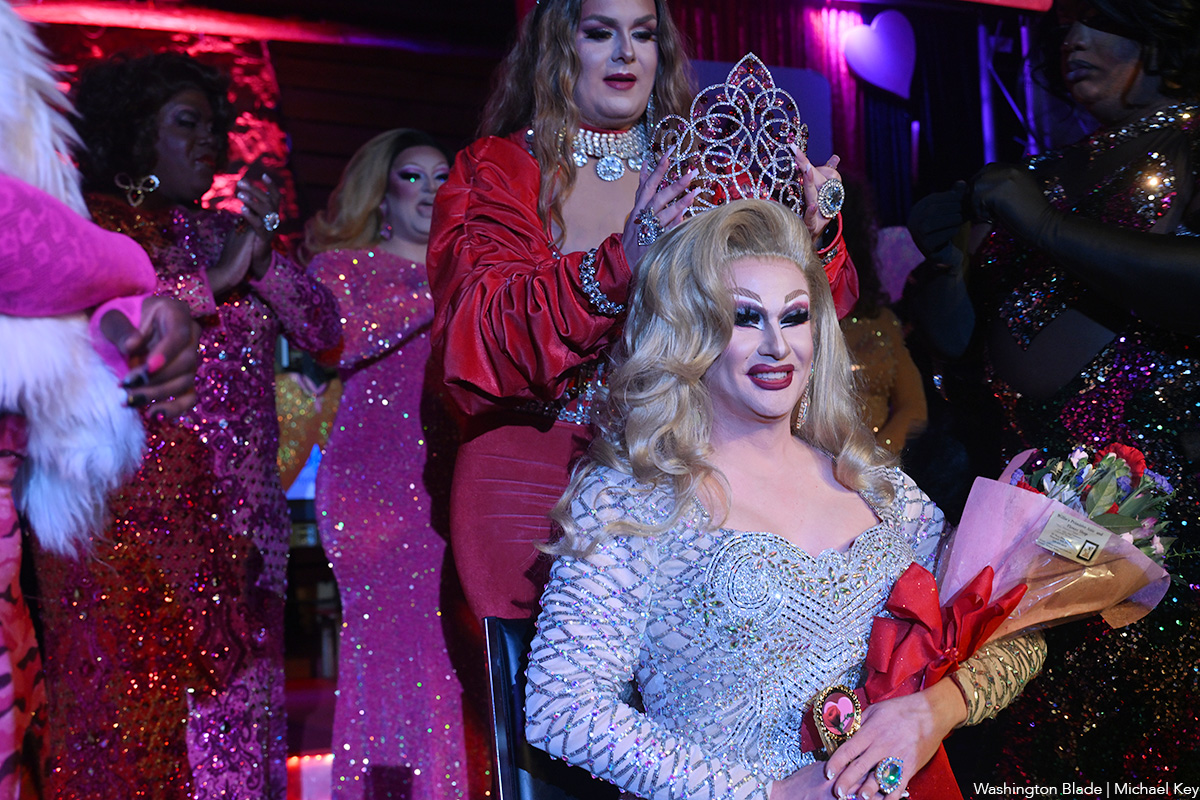
The 44th annual Queen of Hearts pageant was held at The Lodge in Boonsboro, Md. on Friday, Feb. 20. Six contestants vied for the title and Bev was crowned the winner.
(Washington Blade photos by Michael Key)
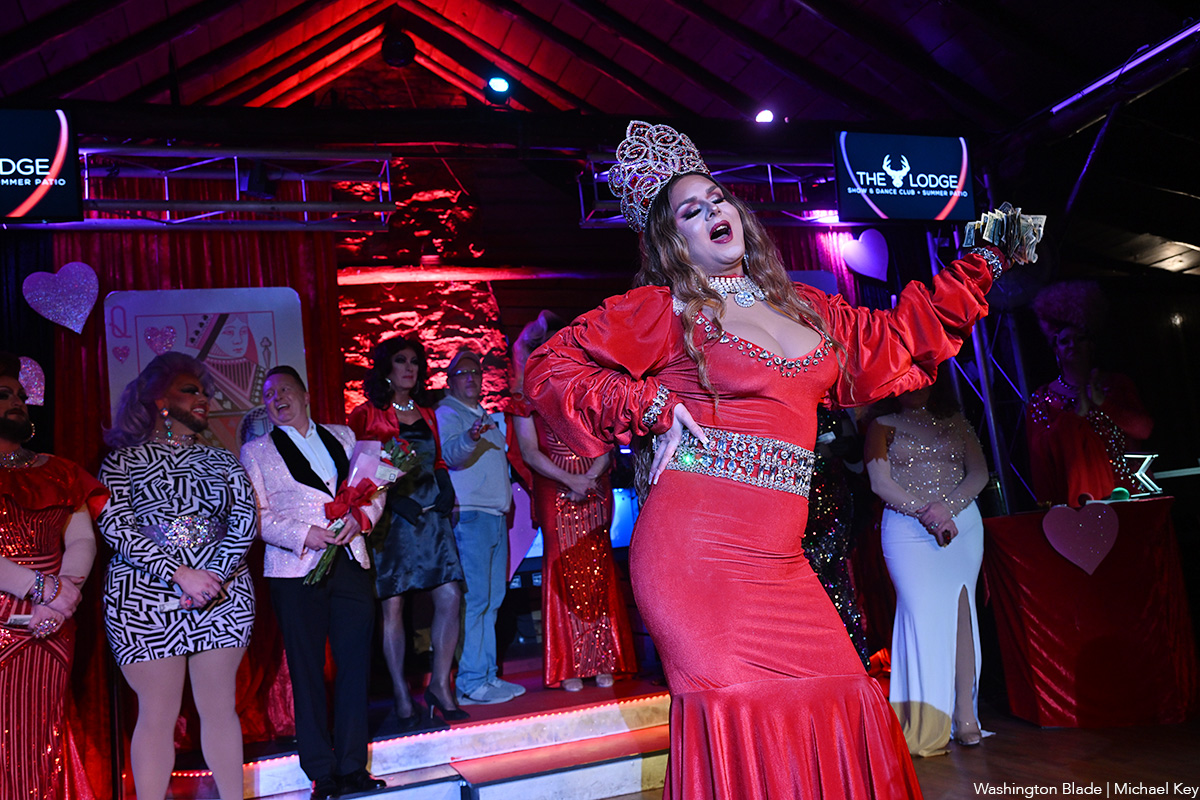
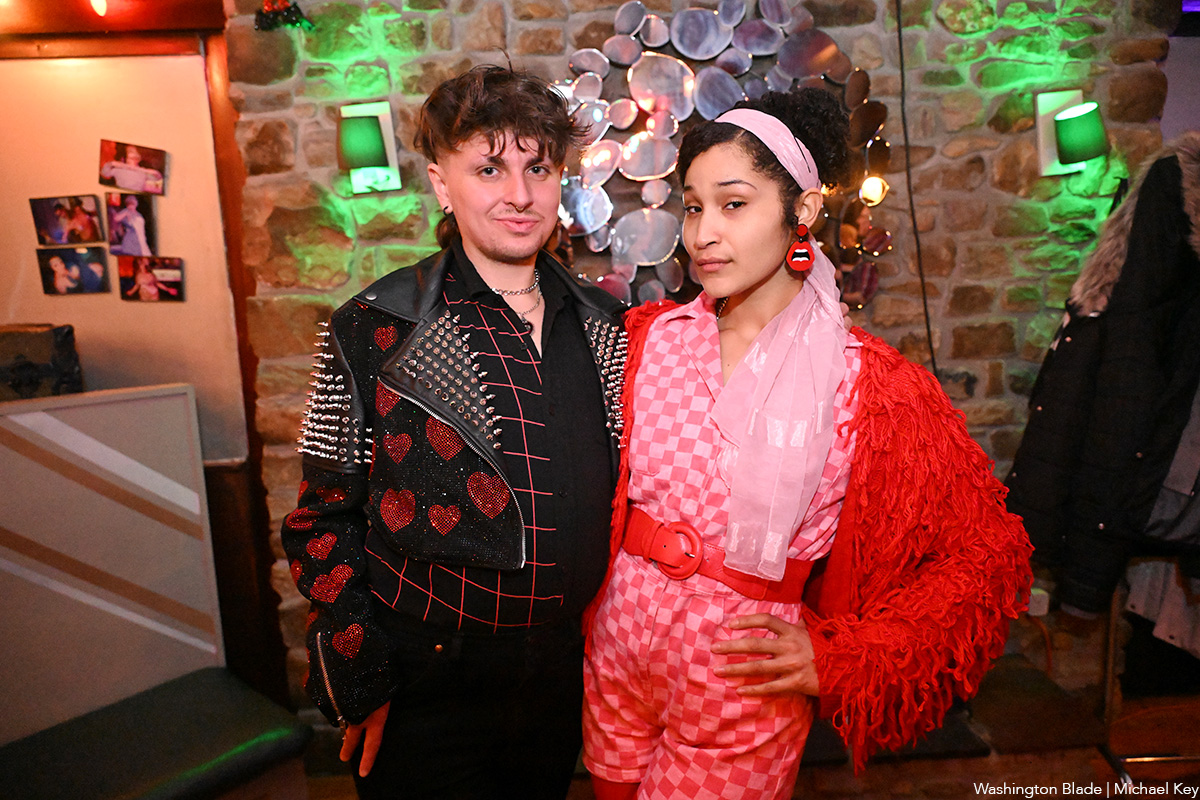
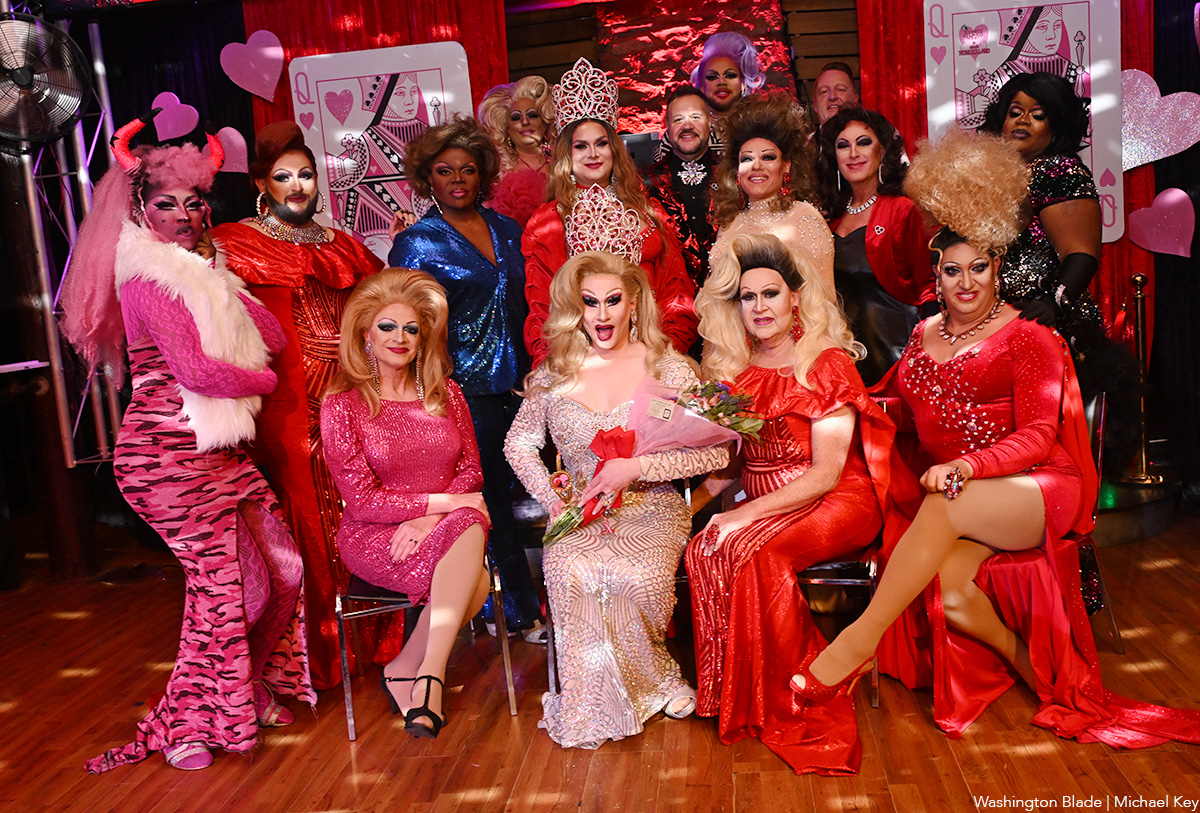
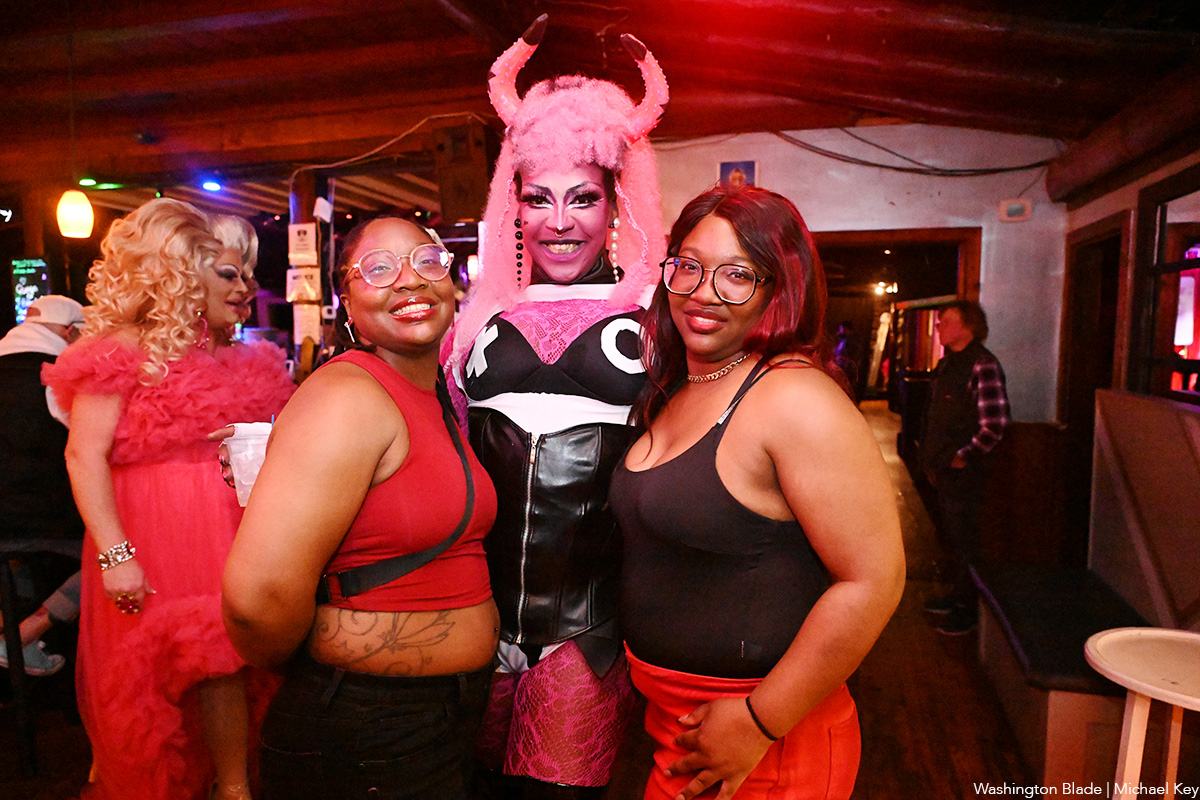
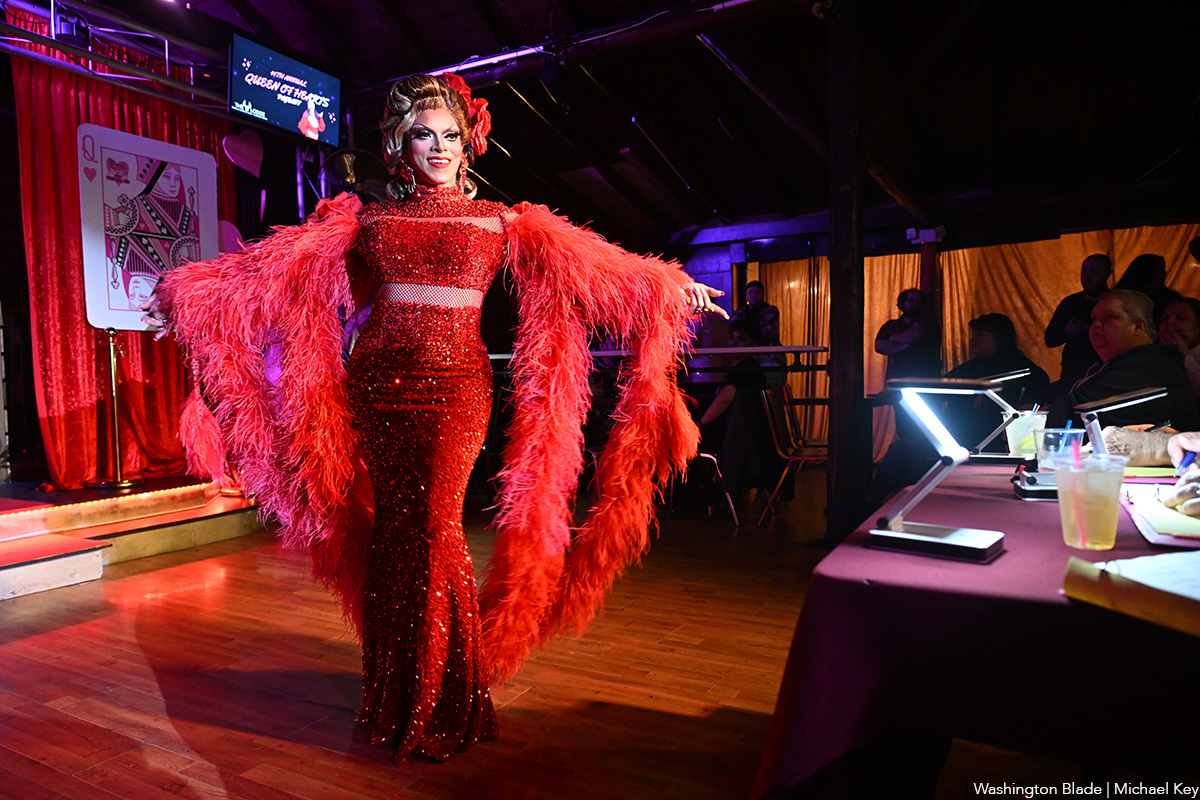
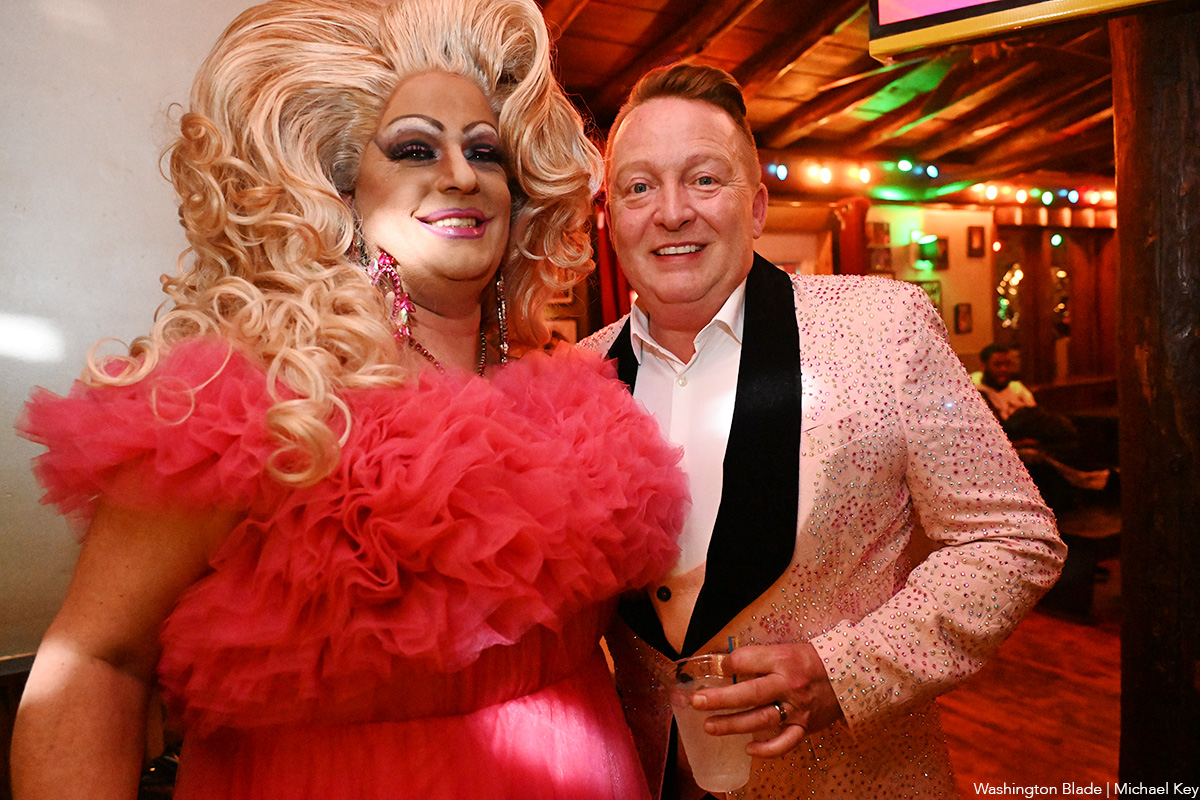
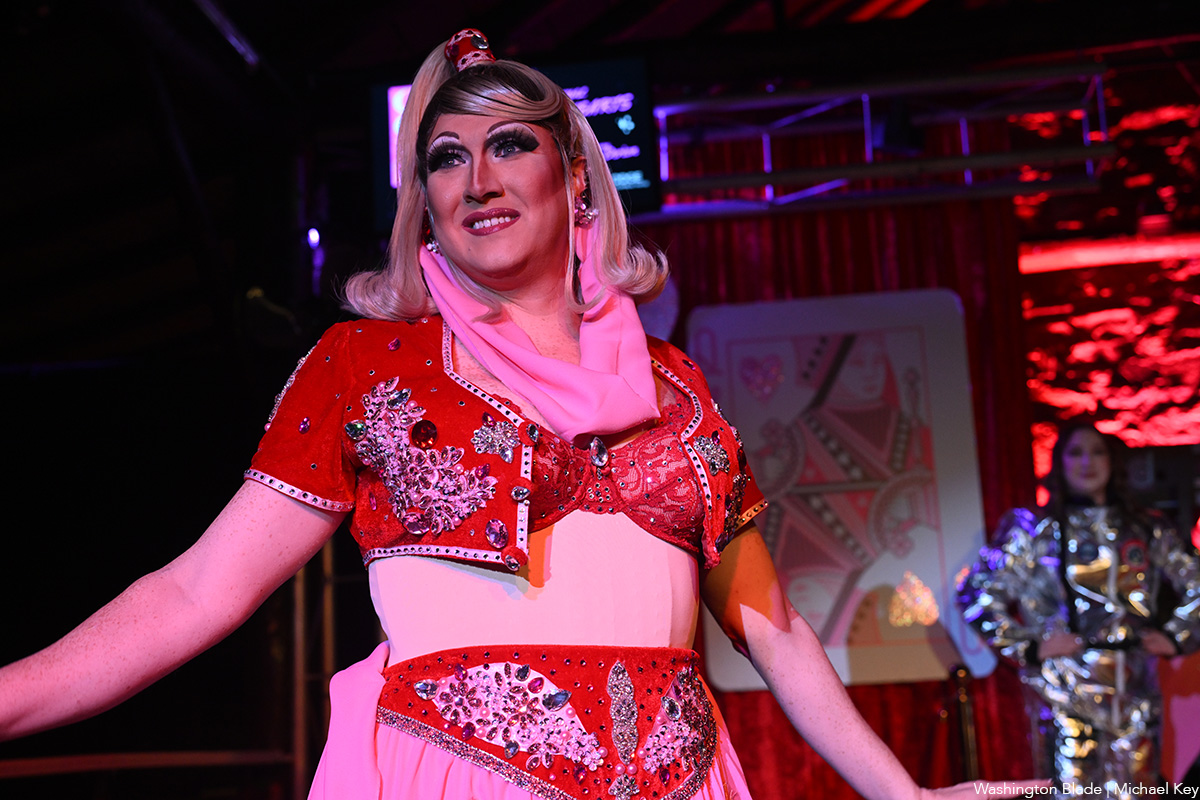
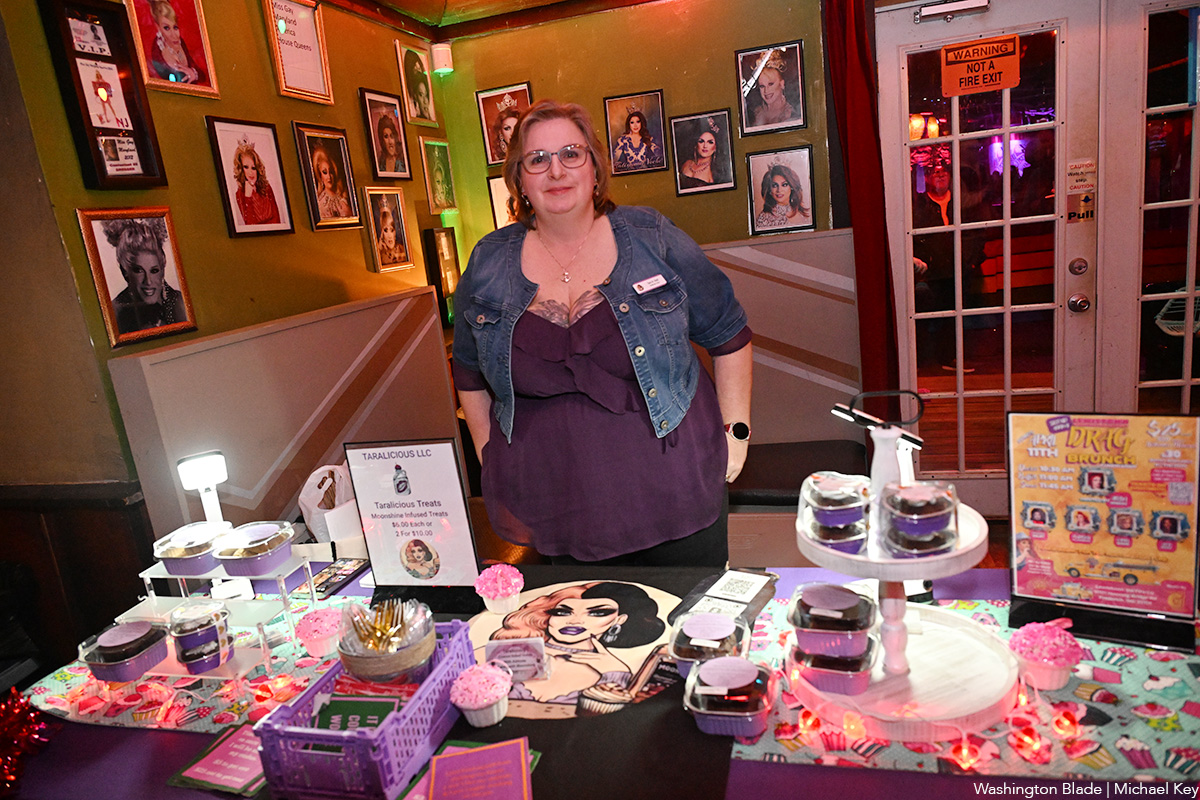
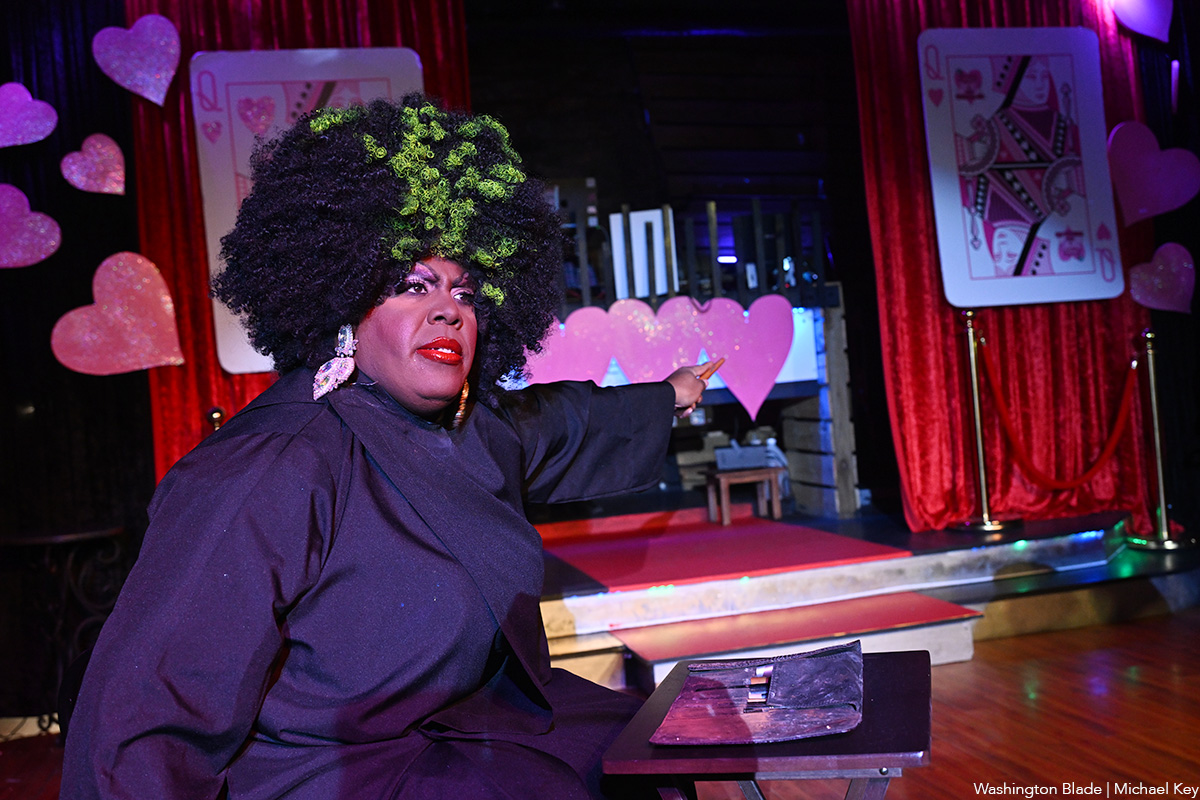
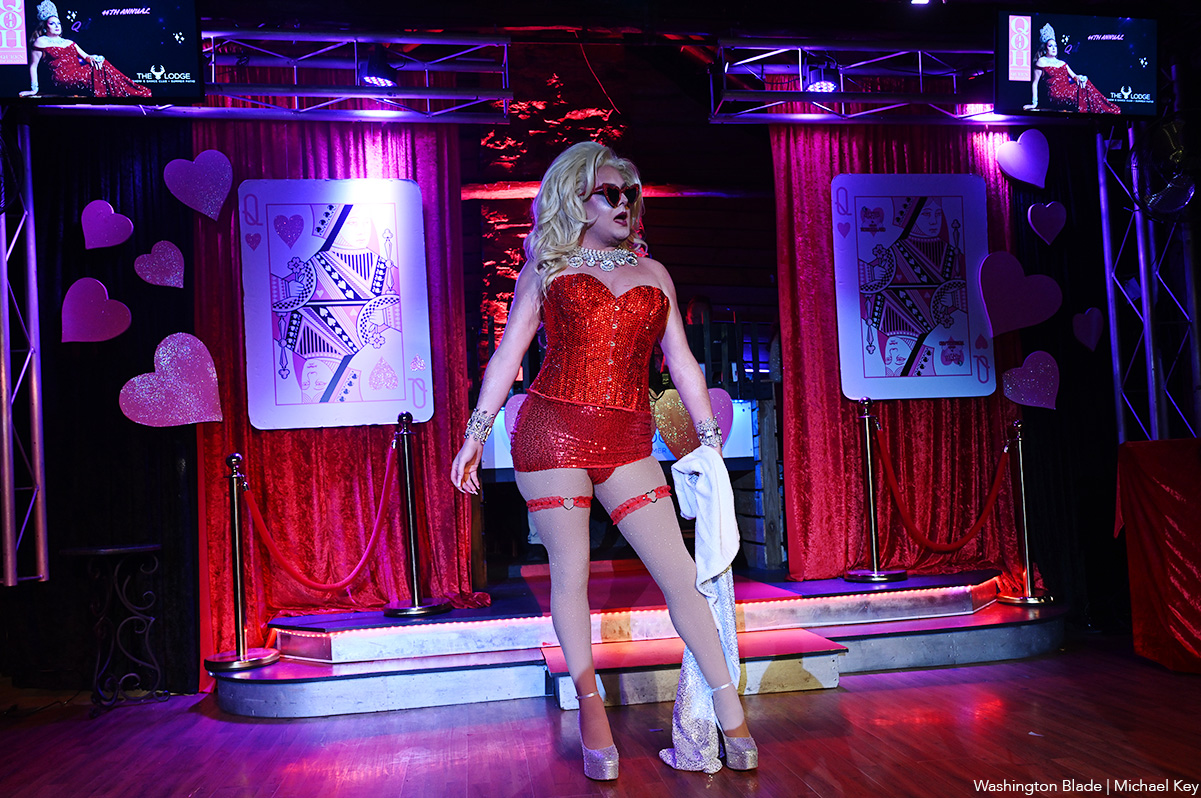
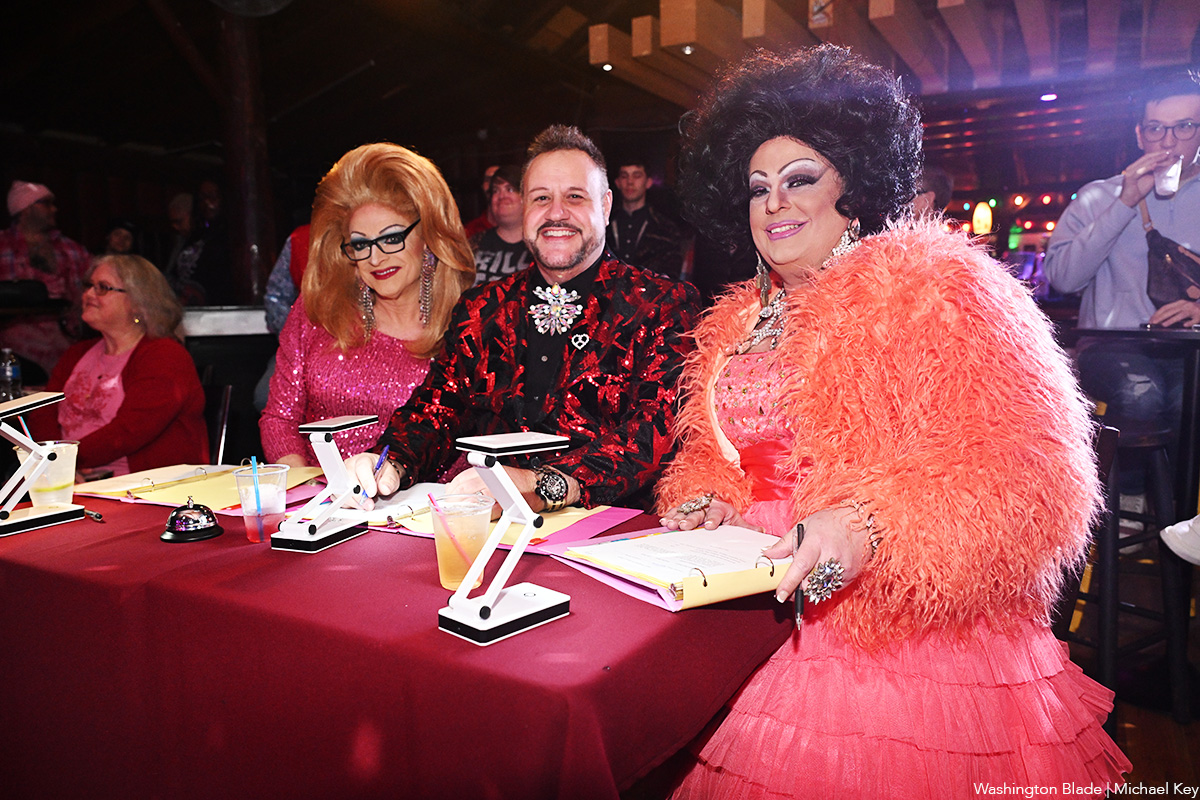
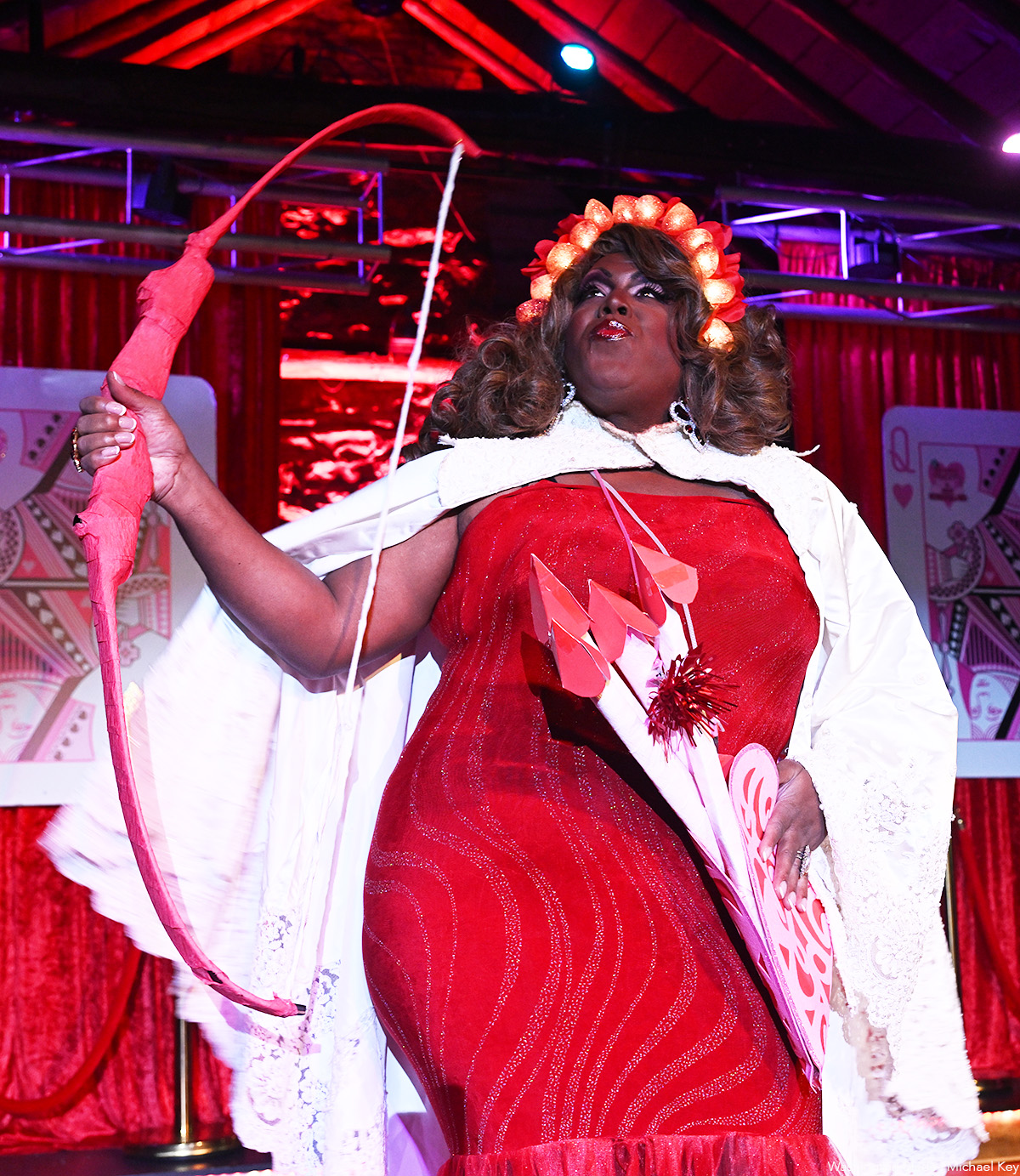
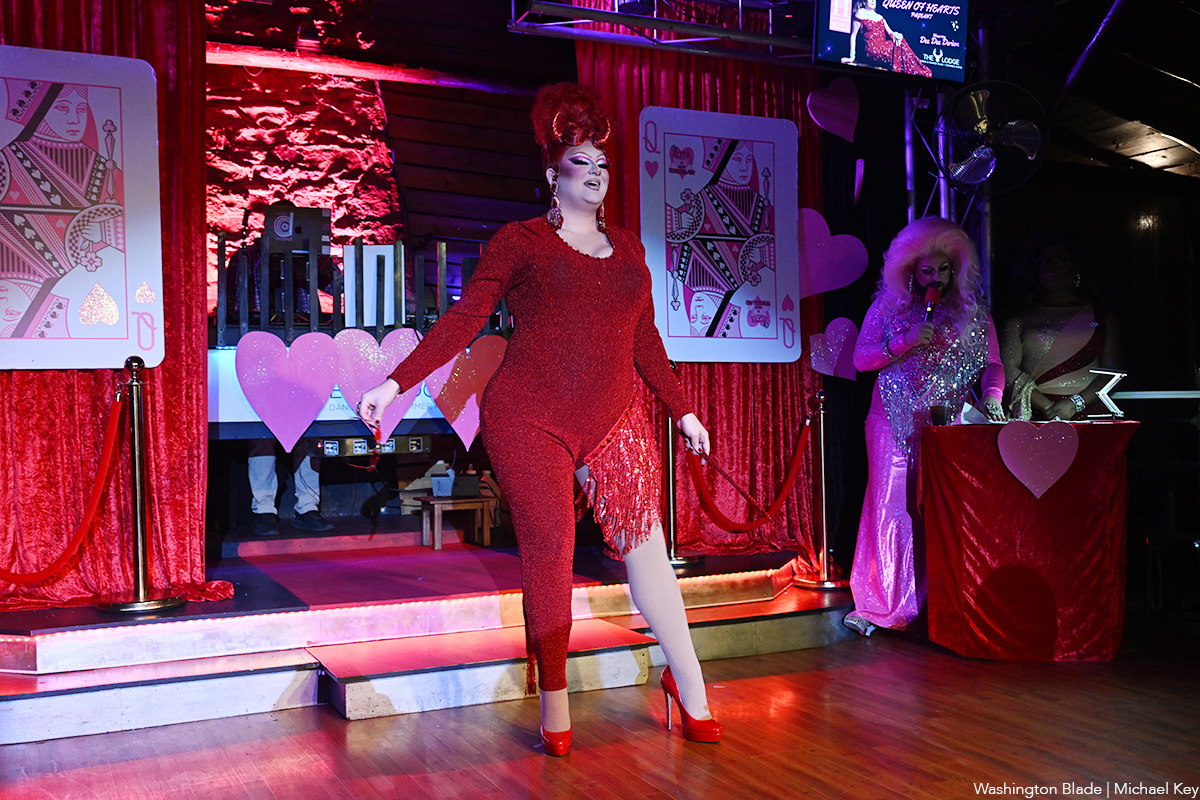
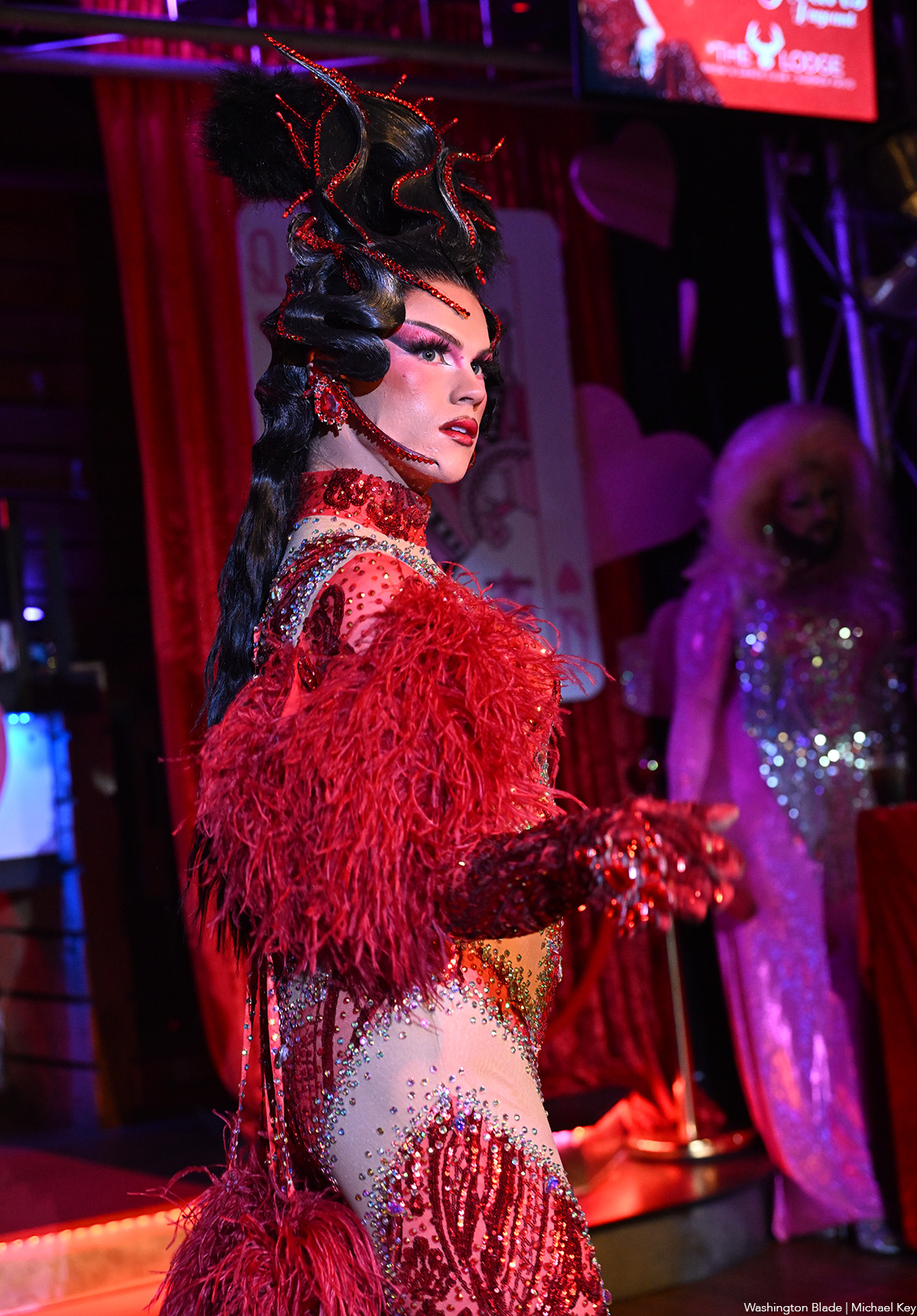
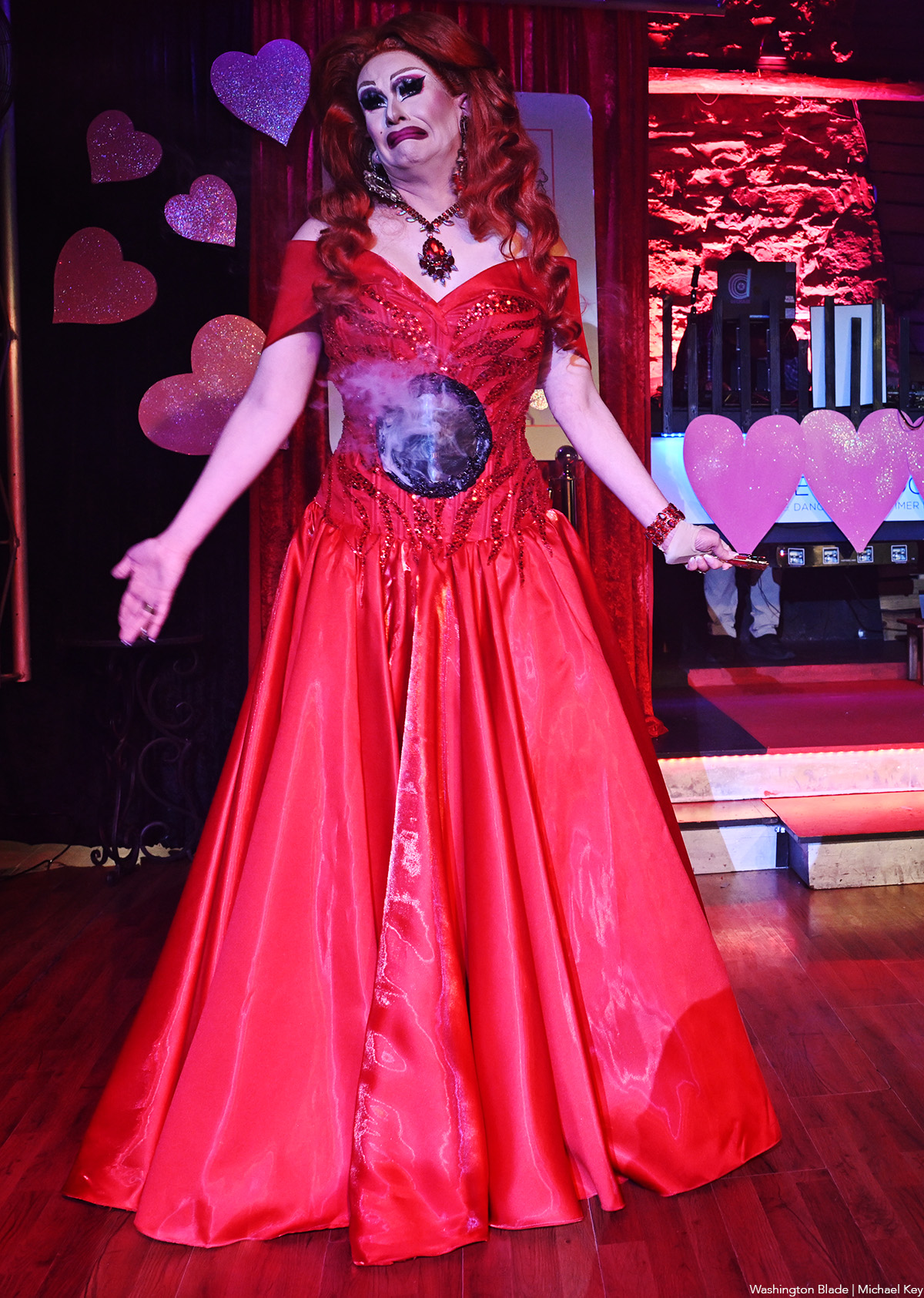
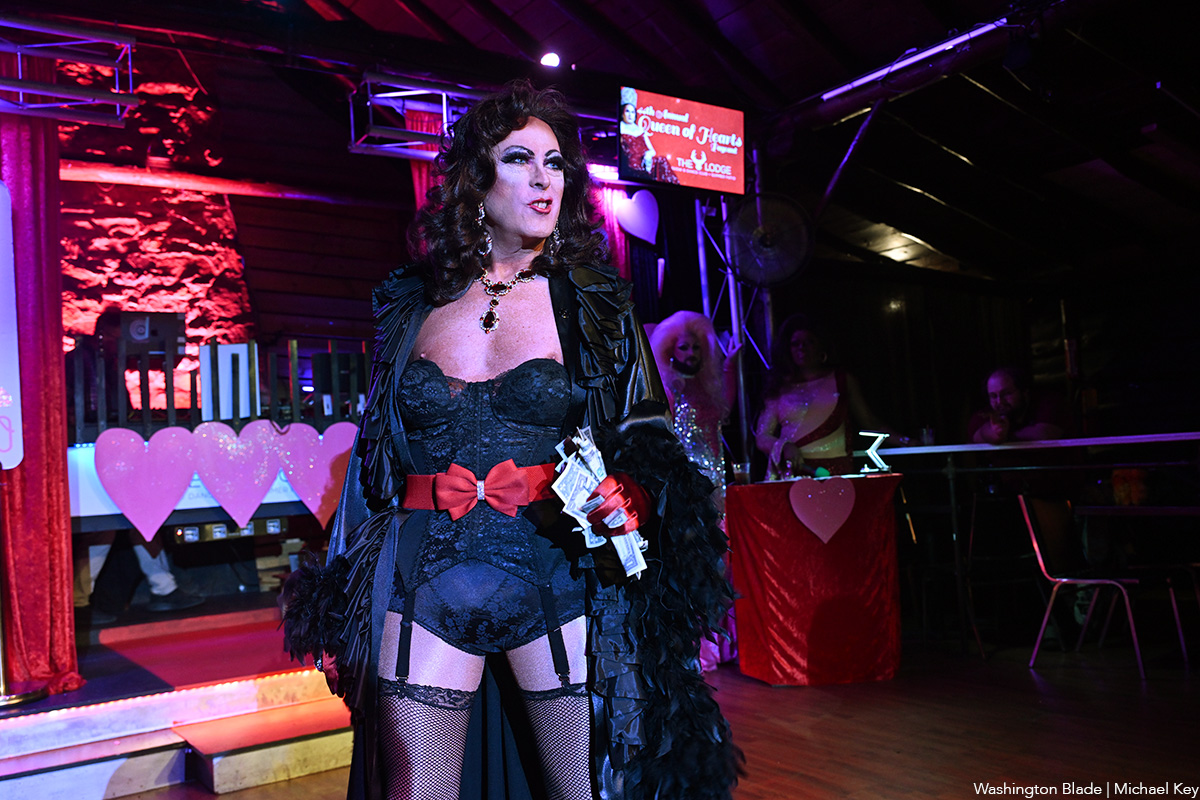
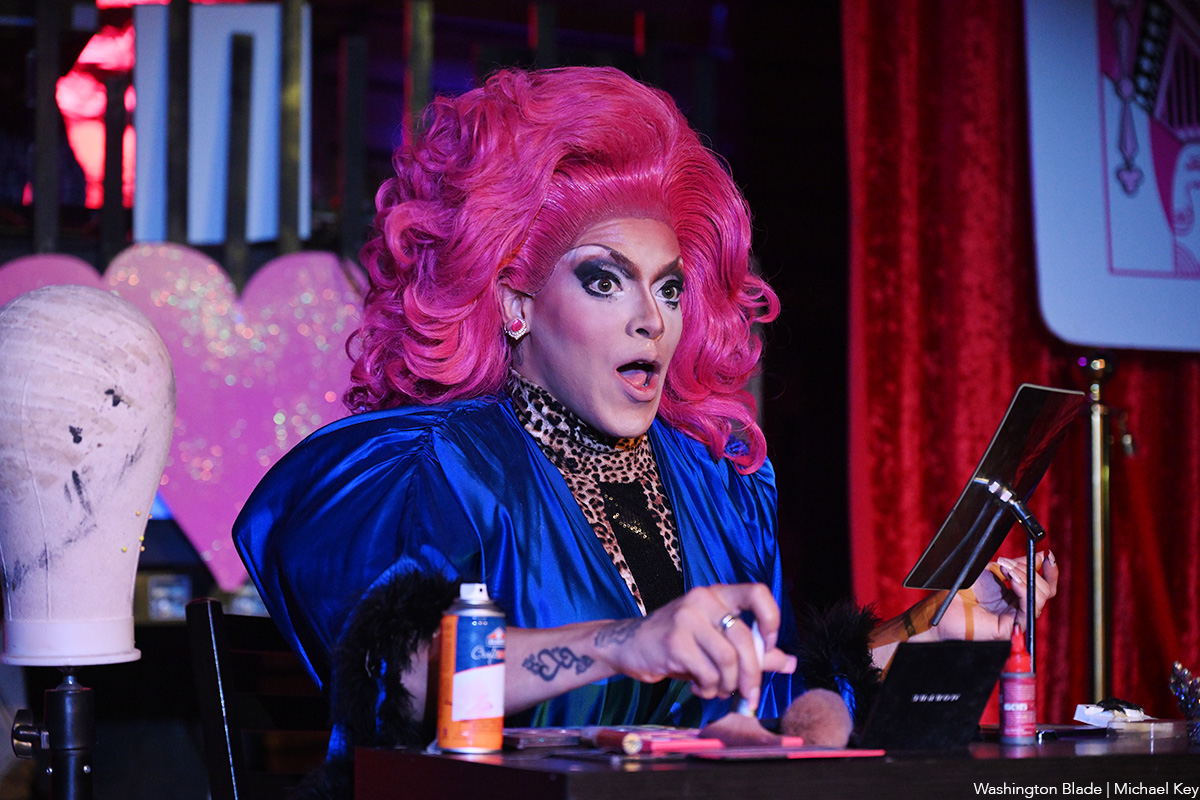
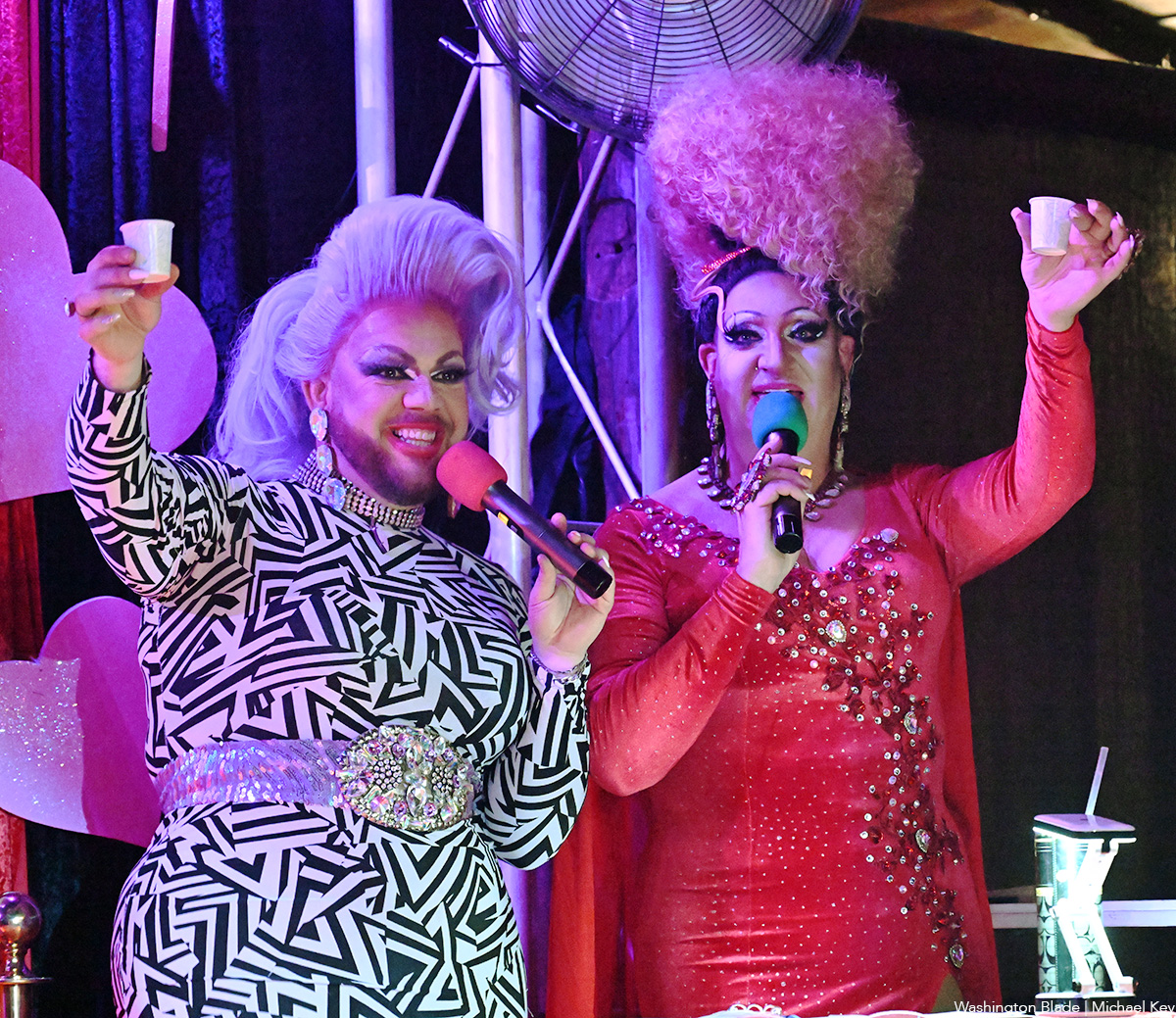

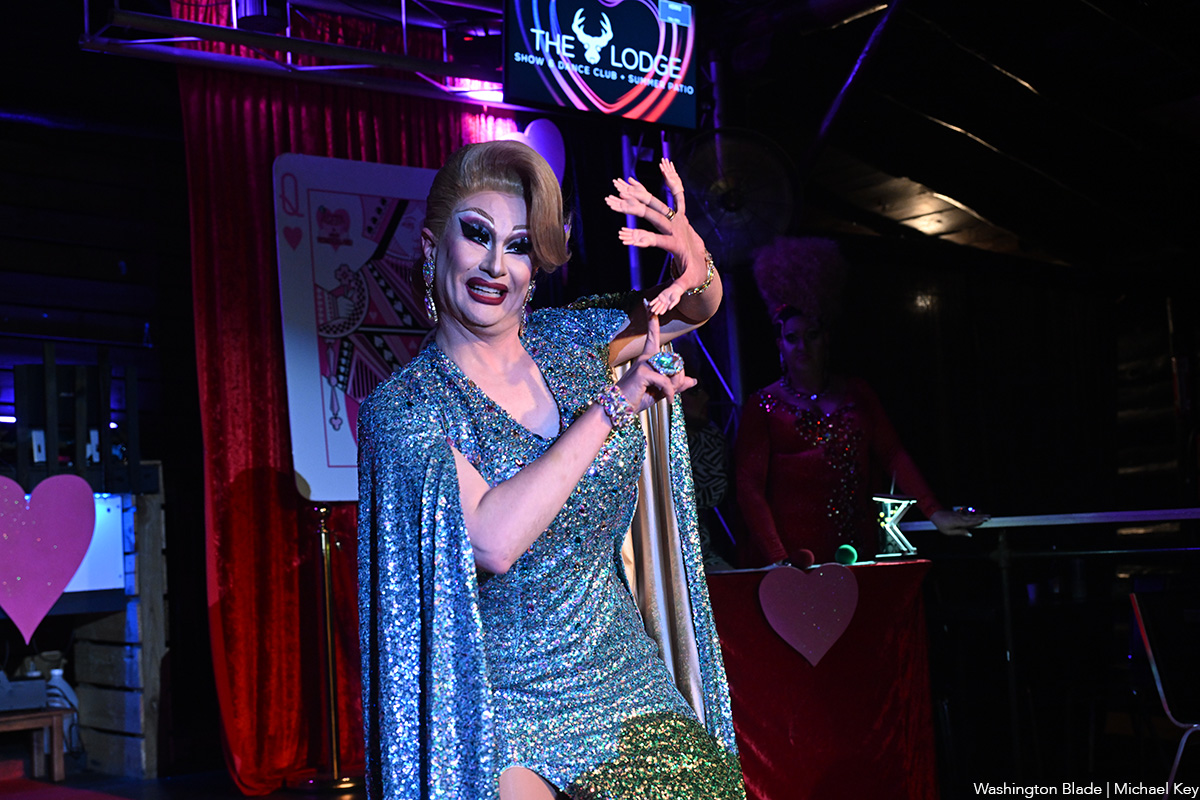
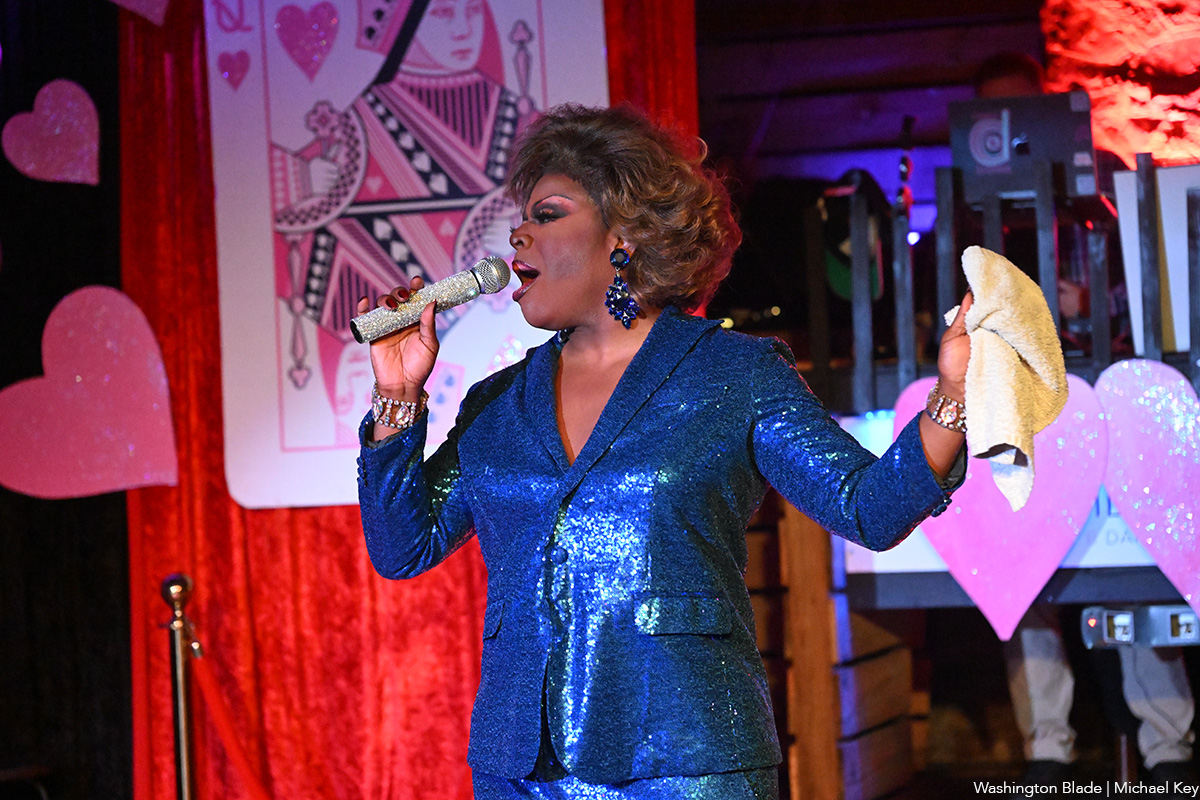
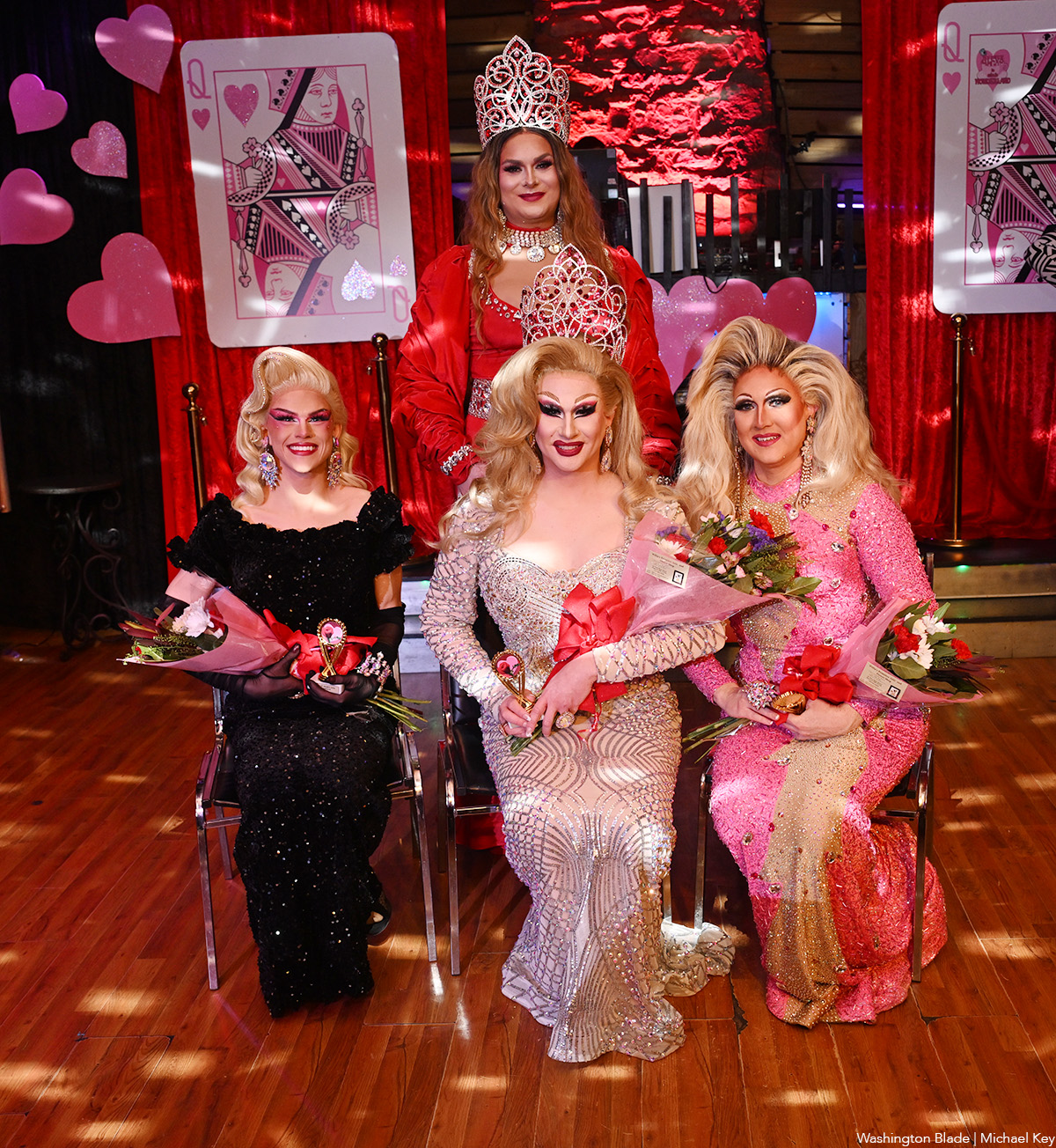
View on Threads
-

 Mexico5 days ago
Mexico5 days agoUS Embassy in Mexico issues shelter in place order for Puerto Vallarta
-

 Real Estate5 days ago
Real Estate5 days ago2026: prices, pace, and winter weather
-

 Theater5 days ago
Theater5 days agoJosé Zayas brings ‘The House of Bernarda Alba’ to GALA Hispanic Theatre
-

 Netherlands4 days ago
Netherlands4 days agoRob Jetten becomes first gay Dutch prime minister




















